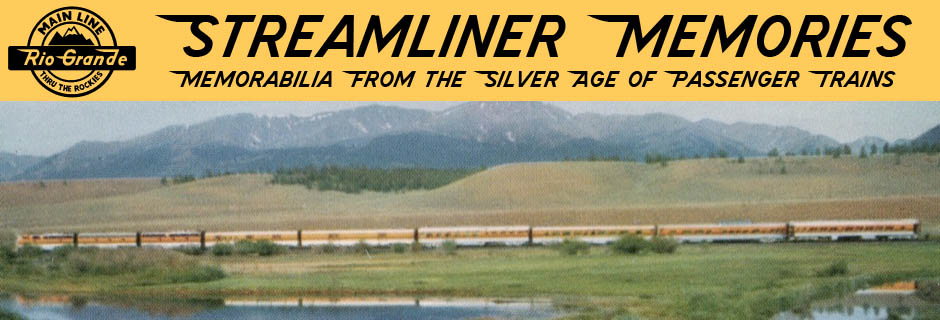Eclipsed by the streamliners, in 1955 the Overland Limited would be cut from a Chicago-San Francisco train to an Omaha-San Francisco train, and after 1956 it had only coaches–not even a diner. So this menu from 1954 represents about the last full service on this legendary train.

Click image to download a 1.8-MB PDF of this menu.
When compared with the train’s 1947 lunch menu, there doesn’t appear to be any downgrade in service in the intervening years. Go back another decade, though, to the 1939 menu shown below (courtesy of the New York Public Library), and there is a major difference.

Click image to download a 1.2-MB PDF of this menu.
Where the post-war menus have four complete lunches and about 40 to 50 items on the a la carte side, the pre-war menu has eight complete lunches and around 90 items a la carte. Several of the items on the pre-war menu are on a mimeographed insert that was taped or glued on to the menu itself for that particular day, testifying to the custom nature of the meal service.
On the other hand, the Overland Limited menus at the New York Public Library almost all have exactly the same cover over a 27-year time period ranging from 1920 to 1946. When compared with the wild variety of colorful covers on UP streamliner menus (and Overland menus starting in 1947), this seems rather dull.
It is also worth noting that the mimeographed insert identifies the 1939 dining car as “diner 374.” Records indicate this car was at least 18 years old when this menu was offered. Though it had been remodeled with the addition of air conditioning in 1937, at that age it would normally have been considered near the end of its life, at least for a first-class train like the Overland Limited. Owned by Pullman at the time, it was probably permanently assigned to UP, which bought it from Pullman in 1941.
